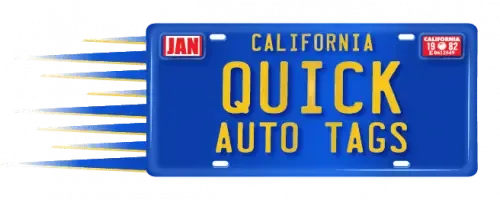Shouldn’t legal owner of a vehicle be the registered owner? In many some cases they are, but not always. If a vehicle is part of a financing agreement, the legal owner will be the individual or entity that provides the financing, and is referred to as the lienholder. The registered owner is responsible for maintaining compliance with DMV laws and regulations. There are several circumstances that make the distinction between the two important:
- Selling a Vehicle – When a vehicle is sold, the seller should submit a notice of transfer and release of liability within 5 days. This documentation relieves the owner(s) of responsibility for parking and traffic violations as well as civil or criminal actions involving the vehicle after the date of sale.
- Buying a Vehicle – The current registration card will list the name of the legal owner of the vehicle. All liens must be satisfied before legal ownership can be transferred.
- Taxes – If a vehicle is purchased from a dealer in California, the dealer is responsible for reporting and paying sales tax. If, however, a vehicle is not purchased from a dealer, the buyer must pay use tax.
- Satisfied Lien – After a vehicle loan has been repaid, the lienholder (i.e., legal owner) will release the lien by signing the title and forwarding it to the new legal owner (i.e., the registered owner).
- Refinancing – When a vehicle is refinanced, the name and address of the new lender, (i.e., the new legal owner) will be submitted to the DMV with a transfer fee. Once the transaction is processed, a new registration card will be issued to the registered owner.
- Time Constraints – The DMV requires that any changes in ownership, registered or legal, be updated within 10 days of the event.
- Accidents – California Vehicle Code Section 17150 states:
“Every owner of a motor vehicle is liable and responsible for death or injury to person or property resulting from a negligent or wrongful act or omission in the operation of the motor vehicle, in the business of the owner or otherwise, by any person using or operating the same with the permission, express or implied, of the owner.”
Therefore, if a vehicle is involved in an accident and the driver of the vehicle cannot be identified, legal action can be taken against the registered owner.
Finding the legal and registered owner information
This notated illustration shows where to find relevant facts regarding registered and legal ownership of a vehicle on the Certificate of Title.

We’re here to help
Do you have a concern about the legal ownership of a vehicle? Is a lienholder issue preventing you from completing a transaction? The experts at Quick Auto Tags understand the DMV requirements and they can help you resolve your problems.
For more information about how Quick Auto Tags can help you, review our services for car owners, then send us message, or give us a call at our office in Riverside: 951.684.0494.
